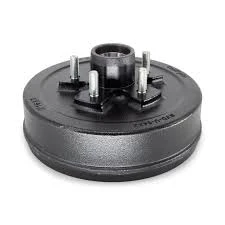
-
 Afrikaans
Afrikaans -
 Albanian
Albanian -
 Amharic
Amharic -
 Arabic
Arabic -
 Armenian
Armenian -
 Azerbaijani
Azerbaijani -
 Basque
Basque -
 Belarusian
Belarusian -
 Bengali
Bengali -
 Bosnian
Bosnian -
 Bulgarian
Bulgarian -
 Catalan
Catalan -
 Cebuano
Cebuano -
 Corsican
Corsican -
 Croatian
Croatian -
 Czech
Czech -
 Danish
Danish -
 Dutch
Dutch -
 English
English -
 Esperanto
Esperanto -
 Estonian
Estonian -
 Finnish
Finnish -
 French
French -
 Frisian
Frisian -
 Galician
Galician -
 Georgian
Georgian -
 German
German -
 Greek
Greek -
 Gujarati
Gujarati -
 Haitian Creole
Haitian Creole -
 hausa
hausa -
 hawaiian
hawaiian -
 Hebrew
Hebrew -
 Hindi
Hindi -
 Miao
Miao -
 Hungarian
Hungarian -
 Icelandic
Icelandic -
 igbo
igbo -
 Indonesian
Indonesian -
 irish
irish -
 Italian
Italian -
 Japanese
Japanese -
 Javanese
Javanese -
 Kannada
Kannada -
 kazakh
kazakh -
 Khmer
Khmer -
 Rwandese
Rwandese -
 Korean
Korean -
 Kurdish
Kurdish -
 Kyrgyz
Kyrgyz -
 Lao
Lao -
 Latin
Latin -
 Latvian
Latvian -
 Lithuanian
Lithuanian -
 Luxembourgish
Luxembourgish -
 Macedonian
Macedonian -
 Malgashi
Malgashi -
 Malay
Malay -
 Malayalam
Malayalam -
 Maltese
Maltese -
 Maori
Maori -
 Marathi
Marathi -
 Mongolian
Mongolian -
 Myanmar
Myanmar -
 Nepali
Nepali -
 Norwegian
Norwegian -
 Norwegian
Norwegian -
 Occitan
Occitan -
 Pashto
Pashto -
 Persian
Persian -
 Polish
Polish -
 Portuguese
Portuguese -
 Punjabi
Punjabi -
 Romanian
Romanian -
 Russian
Russian -
 Samoan
Samoan -
 Scottish Gaelic
Scottish Gaelic -
 Serbian
Serbian -
 Sesotho
Sesotho -
 Shona
Shona -
 Sindhi
Sindhi -
 Sinhala
Sinhala -
 Slovak
Slovak -
 Slovenian
Slovenian -
 Somali
Somali -
 Spanish
Spanish -
 Sundanese
Sundanese -
 Swahili
Swahili -
 Swedish
Swedish -
 Tagalog
Tagalog -
 Tajik
Tajik -
 Tamil
Tamil -
 Tatar
Tatar -
 Telugu
Telugu -
 Thai
Thai -
 Turkish
Turkish -
 Turkmen
Turkmen -
 Ukrainian
Ukrainian -
 Urdu
Urdu -
 Uighur
Uighur -
 Uzbek
Uzbek -
 Vietnamese
Vietnamese -
 Welsh
Welsh -
 Bantu
Bantu -
 Yiddish
Yiddish -
 Yoruba
Yoruba -
 Zulu
Zulu
brake drum dynamometer
Understanding Brake Drum Dynamometers An Essential Tool for Automotive Testing
In the realm of automotive engineering, ensuring that braking systems perform reliably and safely is of utmost importance. One of the critical testing tools used in this field is the brake drum dynamometer. This device plays an indispensable role in evaluating the performance of brakes in various conditions, ultimately contributing to vehicle safety and efficiency.
What is a Brake Drum Dynamometer?
A brake drum dynamometer is a specialized test apparatus designed to evaluate the characteristics and performance of brake systems. It simulates real-world conditions under which brakes operate but allows controlled experimentation. The dynamometer can measure several factors, including braking torque, thermal performance, wear, and noise. These measurements help engineers understand how brakes react under different loads and speeds, providing vital data for development and testing.
How It Works
The dynamometer consists of a rotatable drum that mimics the action of a vehicle’s wheel. The brake drum is mounted on a spindle, and as the drum rotates, brake components (such as brake pads or shoes) are engaged, applying force against the drum surface. This engagement simulates the conditions experienced during actual braking scenarios.
The machine is equipped with various sensors and measurement devices that record parameters such as
1. Braking Torque The torque generated during braking is a critical measure of brake performance. It helps engineers determine how effectively a braking system can bring a vehicle to a stop. 2. Thermal Performance Since brakes generate a significant amount of heat during operation, assessing how well they dissipate heat is essential. Excessive heat can lead to brake fade, a condition where the brakes lose effectiveness. 3. Wear Characteristics Understanding how quickly brake components wear out under simulated operating conditions can inform material choices and design improvements. 4. Acoustic Testing Noise generated by brakes can be a significant concern for consumers. Dynamometers can simulate braking conditions to assess noise levels and help engineers design quieter braking systems.
brake drum dynamometer

Importance in Automotive Safety
Brake drum dynamometers are crucial for improving automotive safety. By rigorously testing braking systems in a controlled environment, manufacturers can identify potential failures and design flaws before the components reach the market.
Regular testing allows engineers to refine their designs, ensuring that brakes not only meet mandatory safety regulations but also exceed consumer expectations. This testing methodology helps in the development of advanced braking technologies, such as Anti-lock Braking Systems (ABS) and Electronic Stability Control (ESC), which have become standard in modern vehicles.
The Role in Research and Development
In addition to safety evaluations, brake drum dynamometers play a substantial role in research and development activities. With the automotive industry continuously evolving, there is a constant need for innovation in braking technologies. The dynamometer allows researchers to test new materials, designs, and systems in a controlled setting, fostering advancements that lead to better performance and durability.
Moreover, as electric and hybrid vehicles gain popularity, the dynamics of braking systems change. Regenerative braking systems, common in electric vehicles, require different testing methodologies. The versatility of the brake drum dynamometer enables adaptation to these new technologies, ensuring that testing methods keep pace with automotive advancements.
Conclusion
In summary, brake drum dynamometers are vital tools in the automotive industry, enabling thorough testing and analysis of braking systems. By accurately simulating real-world conditions, they provide essential data that improves the safety, performance, and reliability of vehicles. As automotive technologies evolve, these dynamometers will continue to play a crucial role in shaping the future of vehicle safety, ensuring that innovations lead to safer roads for all. The emphasis on rigorous testing, combined with continuous research and development, positions the brake drum dynamometer as a cornerstone in the journey toward automotive excellence.
-
What Are Drum BrakesNewsJul.07,2025
-
Understanding Brake Drum MaterialNewsJul.07,2025
-
Semi-Trailer Brake Drum: A Key Component for Extreme Loads and Long-Distance TransportNewsJul.07,2025
-
Drum Brake Pads for SaleNewsJul.07,2025
-
Brake Drums for SaleNewsJul.07,2025
-
Brake Drum ManufacturerNewsJul.07,2025
-
Aluminum Brake Drums: The Future of High-Performance CarsNewsJul.07,2025
